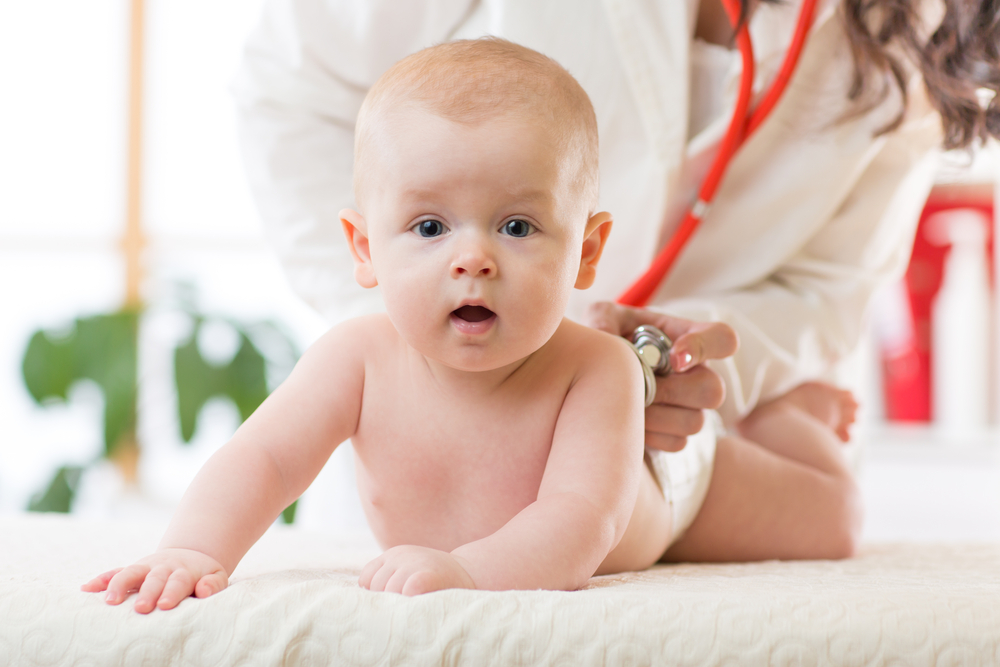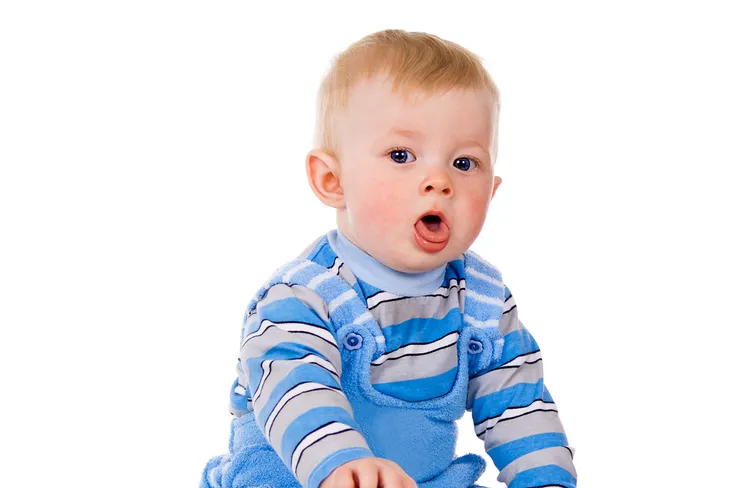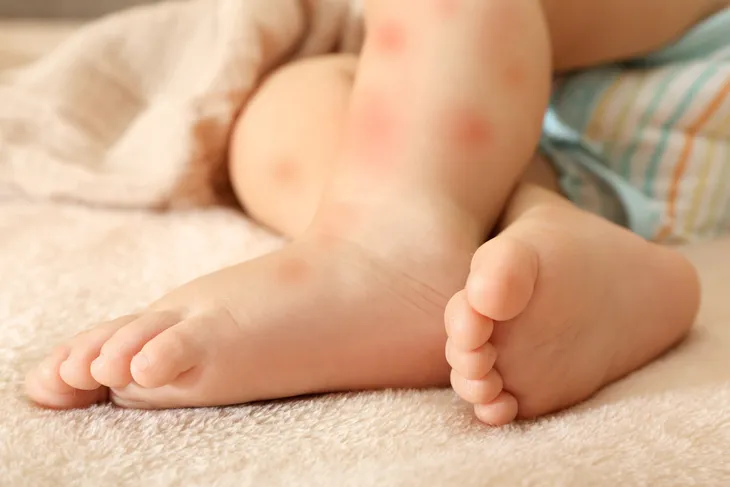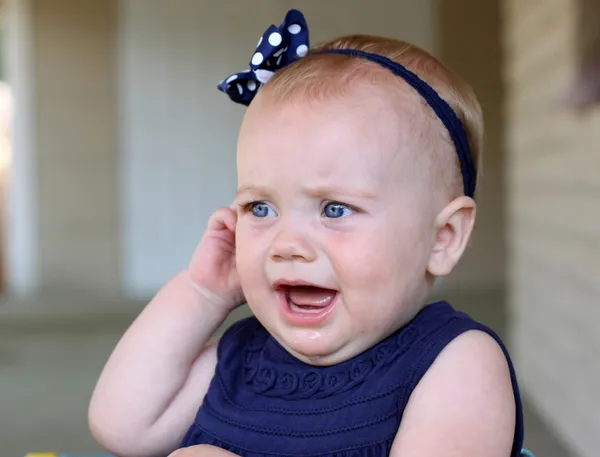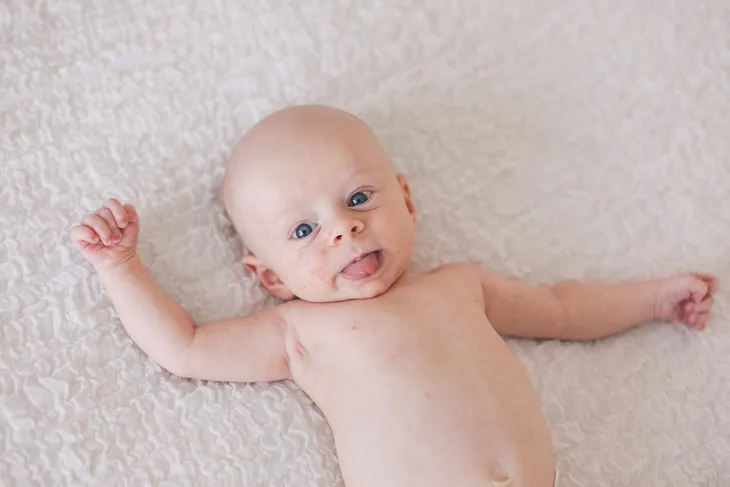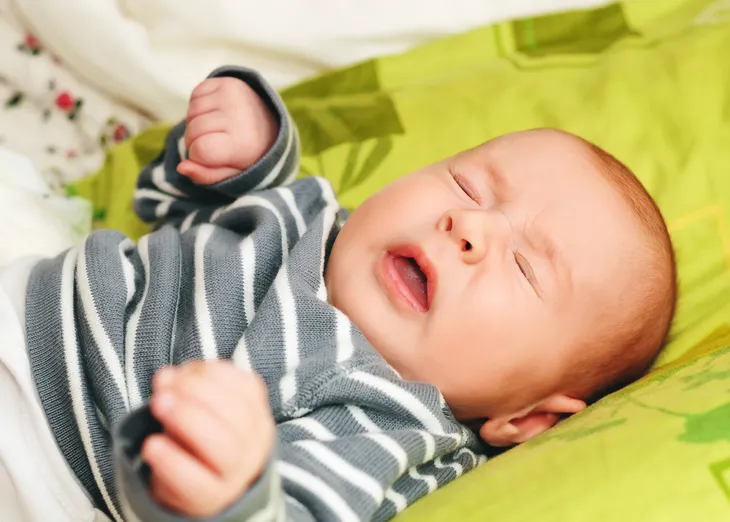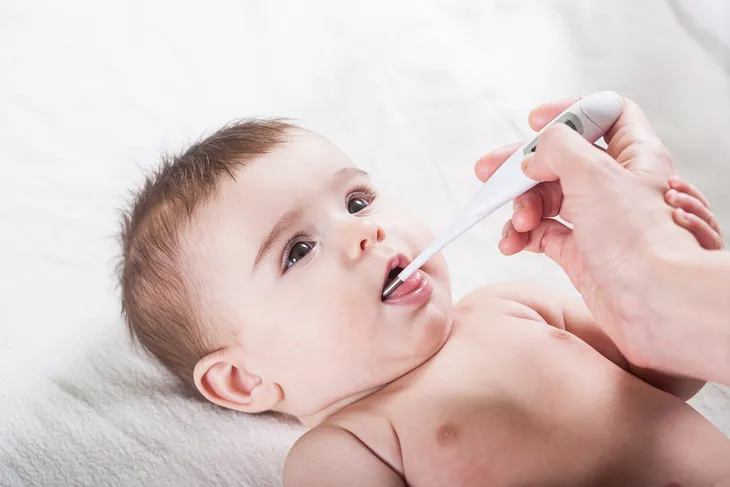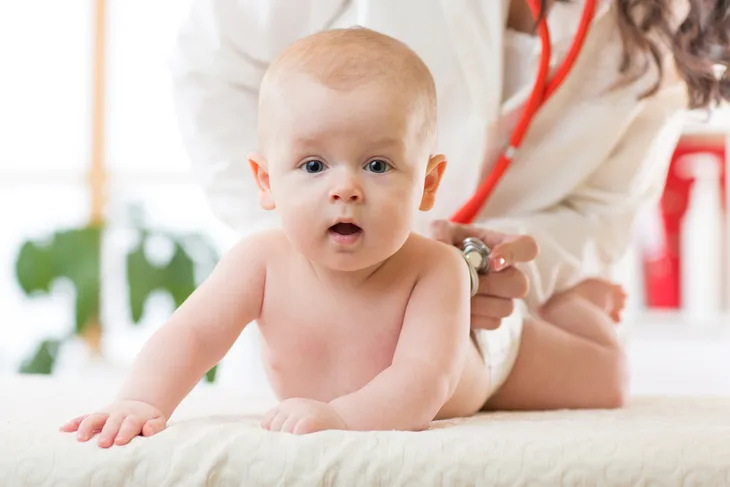When you think of allergies, you probably picture a quaint commercial where a grown man or woman is tiptoeing through a field but then starts sneezing uncontrollably. Well, it turns out it’s not just grownups that have to deal with allergies.
In fact, babies can have a variety of allergies, and they can range from mild to more serious. However, as Parents.com points out, it can be difficult to tell sometimes whether symptoms are from a cold or an allergy. Here are seven things to help you figure it out and take action if needed…
1. Hacking Coughs
These are never pleasant to hear coming from anyone, let alone a baby. While coughing is common in infants and toddlers, as Parent.com points out, the source adds that allergic babies are particularly prone to respiratory viruses “and have trouble getting rid of coughs or colds.”
Additionally, the already small airways of a baby can spasm and swell due to allergens, leading to the dry, hacking cough. In some cases, this cough can progress to wheezing, which may be an indication your child is struggling to breathe.
2. Itchy Rash
BabyCenter.com says if your child has broken out in a red rash or their skin seems to be irritated, they’re likely having an allergic reaction to something they’ve come in contact with. However, the source also points out that a rash on a baby might be caused by something else.
Other possible causes of skin rashes in a baby can be acne, dry skin, or even a skin condition called eczema (which may be tied to allergies in infancy). It may even be ringworm, a fungal infection that’s contagious but not particularly serious, it adds.
3. Ear Infections
These are another common problem among the very young crowd, as the inner ear is still developing. However, the Minnesota Allergy & Asthma Clinic notes that allergies can actually cause inflammation in the ear that leads to fluid build-up, resulting in an ear infection and decreased hearing.
Ear infections can be particularly harmful to young children learning to talk, as the impacts on the hearing can delay speech development. Aside from full-on infections, allergies can also cause itchy ears, popping, or a feeling of fullness – in any case, the patient (of any age) should be considered for allergy testing, notes the clinic.
4. Telltale Eyes
Allergies are known to make eyes red, itchy and watery, and it’s no different in young kids. BabyCenter explains there are ways to determine if your child might be allergic to their environment, just by looking at their eyes.
For example, take a look under his or her eyes – do you see a dark blue or purple area, kind of like an adult who hasn’t sleep in a while (probably from having an allergic baby keeping them up)? Doctors apparently call these dark patches “allergic shiners.” Does your little one also have the telltale watery eyes? Then there’s a good chance they have an allergy.
5. Runny Nose
Colds of course are tied to stuffy noses and sneezing, but if your kid’s nose always seems to be stuffed up or running, then you might want to trace it to an allergy. “Allergies are the most common cause of chronic nasal congestion in children,” explains the Minnesota Allergy & Asthma Clinic.
You might also be able to tell your child’s nose is blocked often if they’ve learned to breathe through their mouth a lot (especially while they’re asleep). It’s important to see a doctor in this case, as mouth breathing and chronic congestion “can cause abnormal changes the way the teeth and the bones of the face grow,” adds the source.
6. Allergies Don’t Cause Fever
One important way to distinguish a cold (or another virus) from an allergy is that while allergies can cause all the symptoms of a cold – sneezing, watery eyes, and even a sore throat – they don’t cause a fever, according to WebMD.
This can be misleading because a common allergy is called hay fever, which is actually seasonal allergic rhinitis. You can look for patterns for when your baby has cold symptoms – if it’s only during a certain time of year, then you might know the culprit. That being said, hay fever in children under 3 is not common, as they have limited exposure to the allergens.
7. Treatments For Different Allergies
Depending on the allergy – assuming it’s not a medical emergency like a peanut allergy, for example – there may be some things to help avoid it or treat it. If there are skin problems like eczema, you can avoid using perfumed bath products and continue with a daily bathing regimen with moisturizer, according to Parents.com.
For nasal allergies, try simply cleaning your home more often to remove any mold, suggests the source. You can also try to keep pets out of your kid’s room in case they’re sensitive to pet dander. If your child seems to get sick or has another (non-emergency) reaction to a particular food, then simply avoid it (which means reading food labels very closely) or get some blood tests ordered. Breastfeeding (and even hypoallergenic formulas) may help delay or prevent the onset of food allergies, adds the source.
